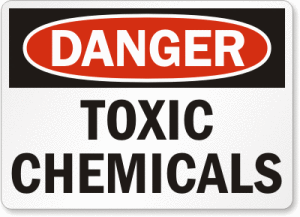In functional medicine, probiotics are regularly recommended for someone having digestive issues. They are also used in the treatment of many diseases, as our gut plays a central role in our immune system. What was once a natural part of our cultural heritage, then seen as “alternative,” is now being altered in the name of science and profit. Can you trust your probiotics?
the treatment of many diseases, as our gut plays a central role in our immune system. What was once a natural part of our cultural heritage, then seen as “alternative,” is now being altered in the name of science and profit. Can you trust your probiotics?
The gut is comprised of many bacteria that make up the strength (or weakness) of our immune response. The bacteria are a “biota” and together they live in the “biome” of our gut. Probiotics as a word can be broken down to mean pro- (good or beneficial) biotics (bacteria) or beneficial bacteria.
There is actually more bacterial DNA than human DNA in our bodies. This unique and intricate bacterial balance has existed for thousands of years. This is such a complex concept, and new to scientific understanding, that there is an entire project dedicated to it, the Gut Biome Project. Yet somehow, other scientists believe that they know “enough,” that they are willing to alter that incredibly unique biome using new genetically altered probiotics.(1)
History of Probiotics
Probiotics and the fermentation of bacteria for human consumption can be traced back to all cultures and to ancient civilizations. Cultured products include fermented milk (yogurt, cheese and kefir), vegetables such as cabbage (sauerkraut or kimchi), pickles, and soy beans (miso, natto, soy sauce, tempe) tea (kombucha) and even water (water kefir).
“Scientists still don’t know exactly how probiotic bacteria influence the gastrointestinal system, but previous research suggests several possible mechanisms. Beneficial bacteria might temporarily alter the ratio of good to bad bacteria that inhabit the intestine, or they might specifically block activity of bad bacteria.”(2)
In fact, during the writing of this blog I realized that my generation and even my parents’ were one of the first who likely received little to no probiotics during childhood and possibly throughout our lifetime. As a kid I might have had pickles on a hotdog or sugary yogurt in my teens. But we did not have a small amount of ferment alongside of each meal, which was prior a tradition in most cultures. How might this have weakened several generations of our gut biome?
It’s only in fairly recent history that probiotics have been made into a pill form that people can swallow rather than eat in food form. For many years this was seen as “alternative medicine” and was available as a supplement. As allopathic (mainstream) medicine is beginning to understand what humans have understood for as long as we have had civilized cultures, they want to truly “make a pill for that.” And in order for pharmaceutical companies to put a patent on a medicine, it cannot be a naturally occurring substance – it must be altered somehow.
Probiotics have been recognized as a food and not a drug by regulatory bodies throughout the world. As such, there have not been stringent regulations applied to the alterations being made…or how those alterations might negatively impact our unique and incredibly important gut biome. On top of that, one of the food regulations is that as long as an additive is below 0.9% of the whole, there is no requirement or regulation whatsoever (nothing has to be stated or included on the label). For instance, they could put in 0.9% of genetically modified, non-human bacteria and still call the product organic and pure.
Do you know the source and quality of your probiotics???
Sources:
- Genetically Engineered Probiotics. http://www.ncbi.nlm.nih.gov/pubmed/14507594
- Genetically Engineered Probiotics. http://www.technologyreview.com/news/422571/genetically-engineered-probiotics/




